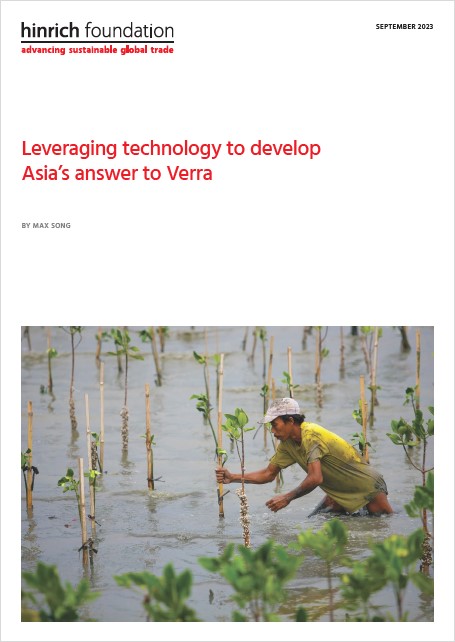
Published 05 September 2023
Asia is key to the global drive to reduce carbon emissions. The majority of projects that generate carbon credits are based in the Asia-Pacific, but the major registries that list, audit, and regulate their legitimacy are predominantly located in the West. It's time for Asia to develop its own carbon registries.
By 2030, carbon emissions must be reduced by 45% to meet the world's climate targets in the Paris Agreement. Producers are headed for a scramble for carbon credits as the deadline looms. The development of robust global carbon markets is a crucial tool in the fight against climate change. As the adoption of carbon credits grows, however, oversight problems has wracked the quasi-regulators that now run the global verification system for carbon credit projects. It's become a bottleneck for the development of Asia's carbon market. With more than 50% of the world’s emissions concentrated in the region, Asia still lacks native carbon registries and verification bodies to regulate emission cuts. Verra, the world’s largest carbon registry, is grappling with a scandal after journalists reported that most of its issued forestry carbon credits were fraudulent or non-existent.
Asian carbon registries are essential to channel investment into urgently needed emissions reduction, entrepreneur Max Song writes. Rapid developments in information technology, such as remote sensing, public ledger databases, and AI, offer new solutions to accelerate the development of such projects and facilitate standardization across registries.
As with all commodities trade in general, there needs to be internationally agreed standards for carbon footprints to truly function as a global market. All production carries a carbon cost. Without an accurate understanding of the precise measurement of the carbon footprint, the end-consumer will never truly understand the impact of consumption, Song writes.
Ensuring accountability for meeting such standards is crucial for buying and selling of carbon credits. Verification bodies are the key technical expertise to audit carbon projects. Registries are the gatekeepers of carbon markets and track credit issuance, purchase transfers, and retirement of credits. They are essential to data transparency and market integrity.
Download Leveraging technology to develop Asia's answer to Verra by Max Song:

© The Hinrich Foundation. See our website Terms and conditions for our copyright and reprint policy. All statements of fact and the views, conclusions and recommendations expressed in this publication are the sole responsibility of the author(s).
Author
Max Song
Max Song is CEO of Carbonbase, an APAC climate technology company serving large corporate climate transition and building Asia’s first blockchain-based carbon registry.
Have any feedback on this article?
Related Articles

Fast-tracking blockchain use for interoperable and inclusive trade
11 May 2022

Fast-tracking blockchain use for interoperable and inclusive trade
11 May 2022

Fast-tracking blockchain use for interoperable and inclusive trade
11 May 2022




